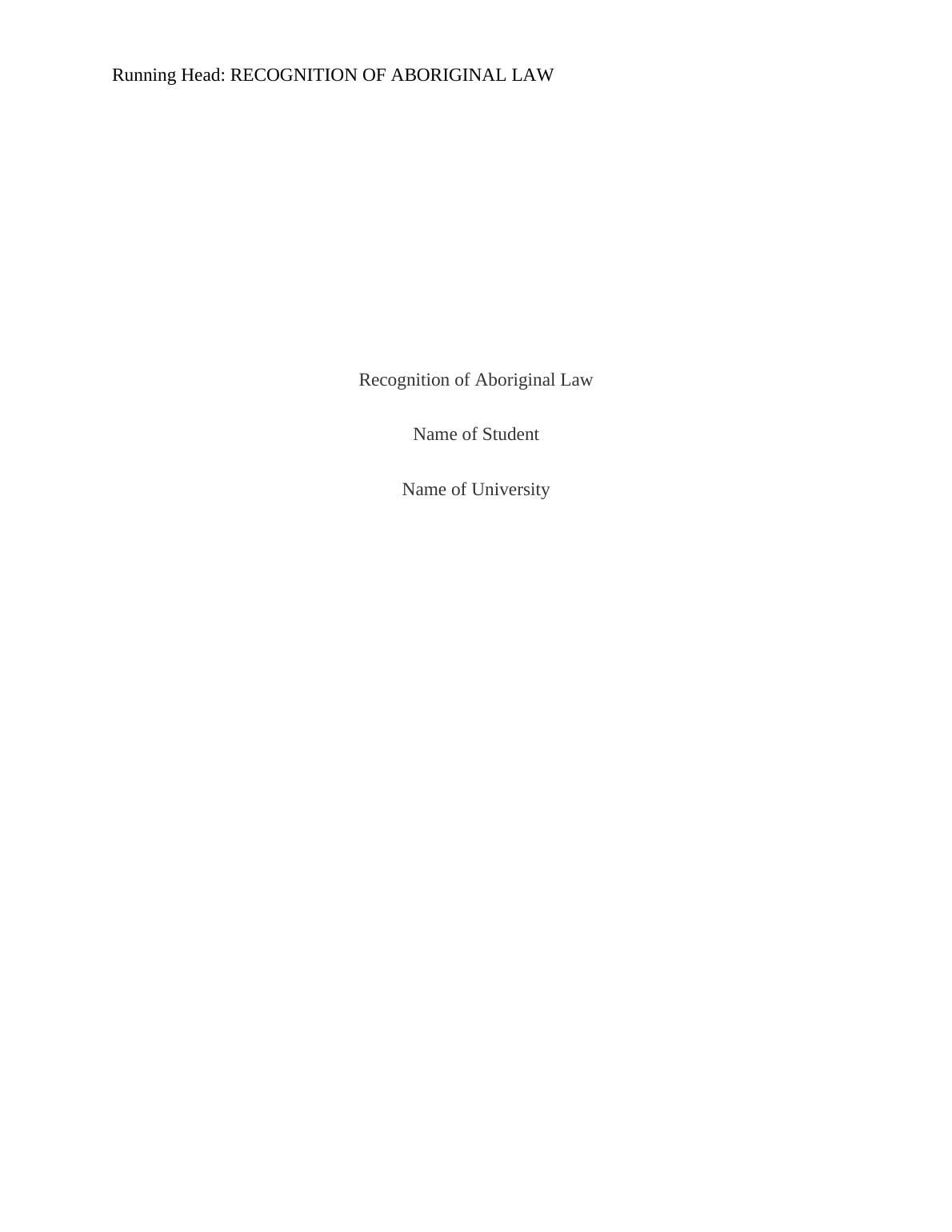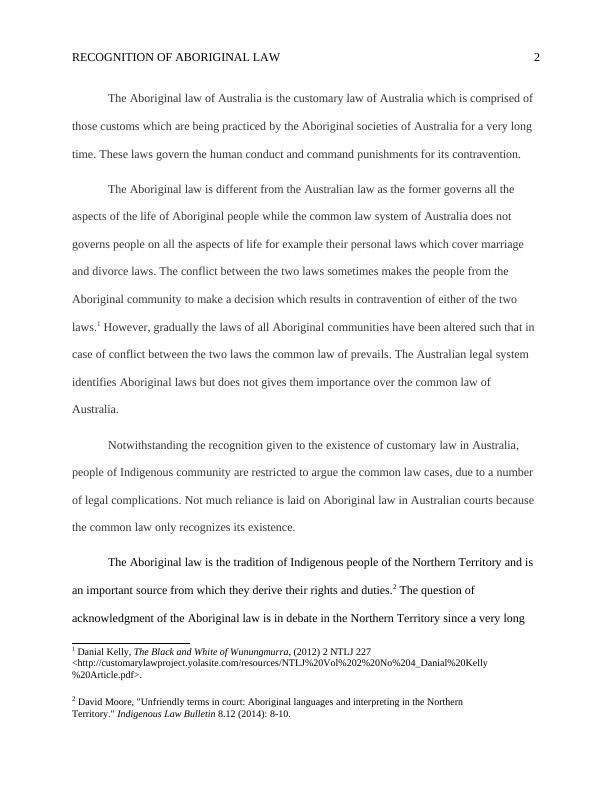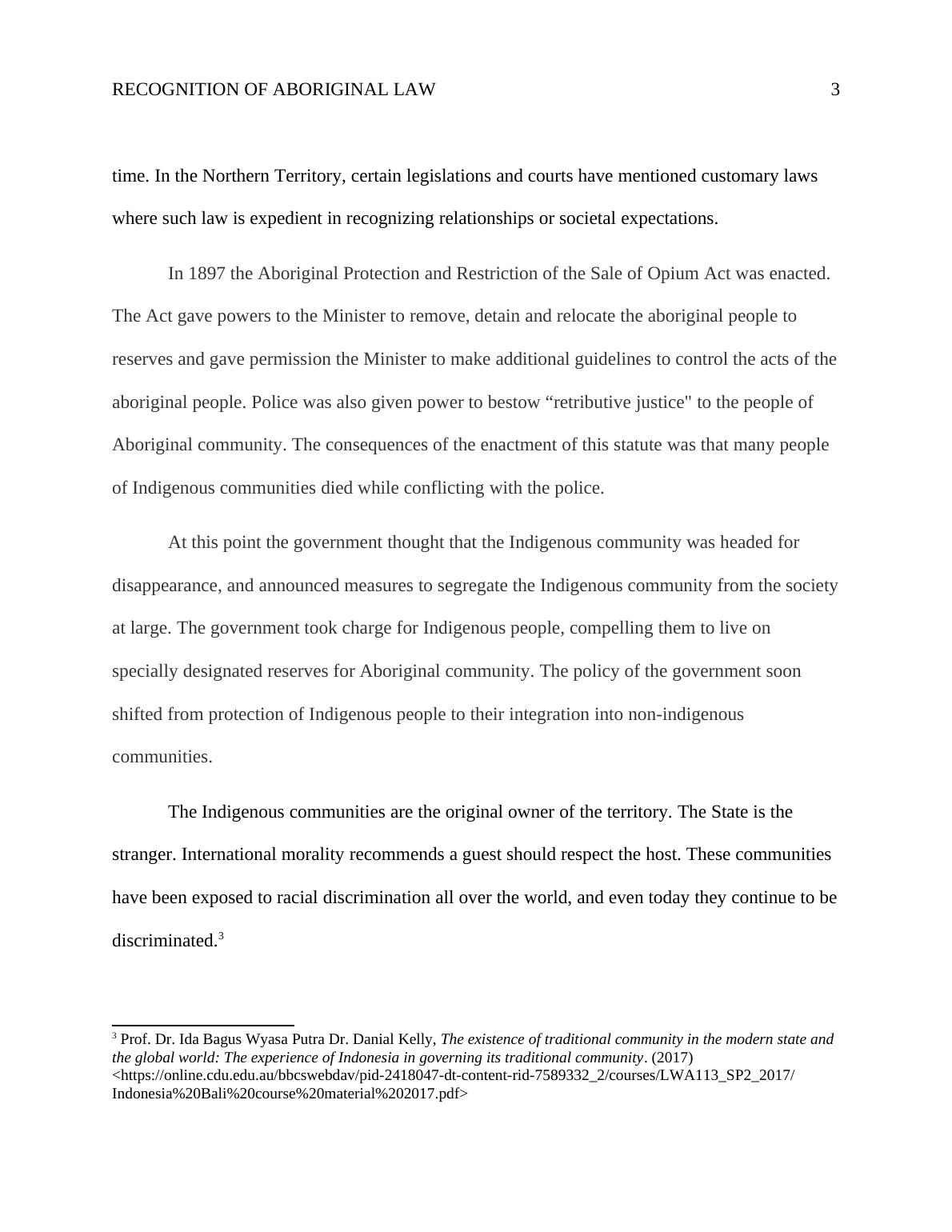Ask a question from expert
LWA113 Customary Law | Aboriginal Law
7 Pages1465 Words343 Views
Charles Darwin University
Customary Law (LWA113)
Added on 2020-02-24
About This Document
The purpose of a model is recognition of Aboriginal law by the legal system of the Northern Territory of the Commonwealth of Australia that you consider would be most appropriate and explain why. In this paper, we will also compare and contrast the situation in Australia with relevant aspects of legal pluralism in Indonesia.
LWA113 Customary Law | Aboriginal Law
Charles Darwin University
Customary Law (LWA113)
Added on 2020-02-24
BookmarkShareRelated Documents
End of preview
Want to access all the pages? Upload your documents or become a member.
Northern Territory Intervention
|9
|2481
|89
Policy Regarding Indigenous People in Australia Assignment 2022
|8
|2013
|14
Indigenous Australian Cultures
|8
|2320
|477
Re-conceptualization of Aboriginal Sovereignty in Australia
|9
|2300
|24
Recognition of Indigenous Australians in the Federal Constitution
|10
|2743
|56
Property Law Mail : Impact of a Native Title Determination of Business
|5
|1140
|15


